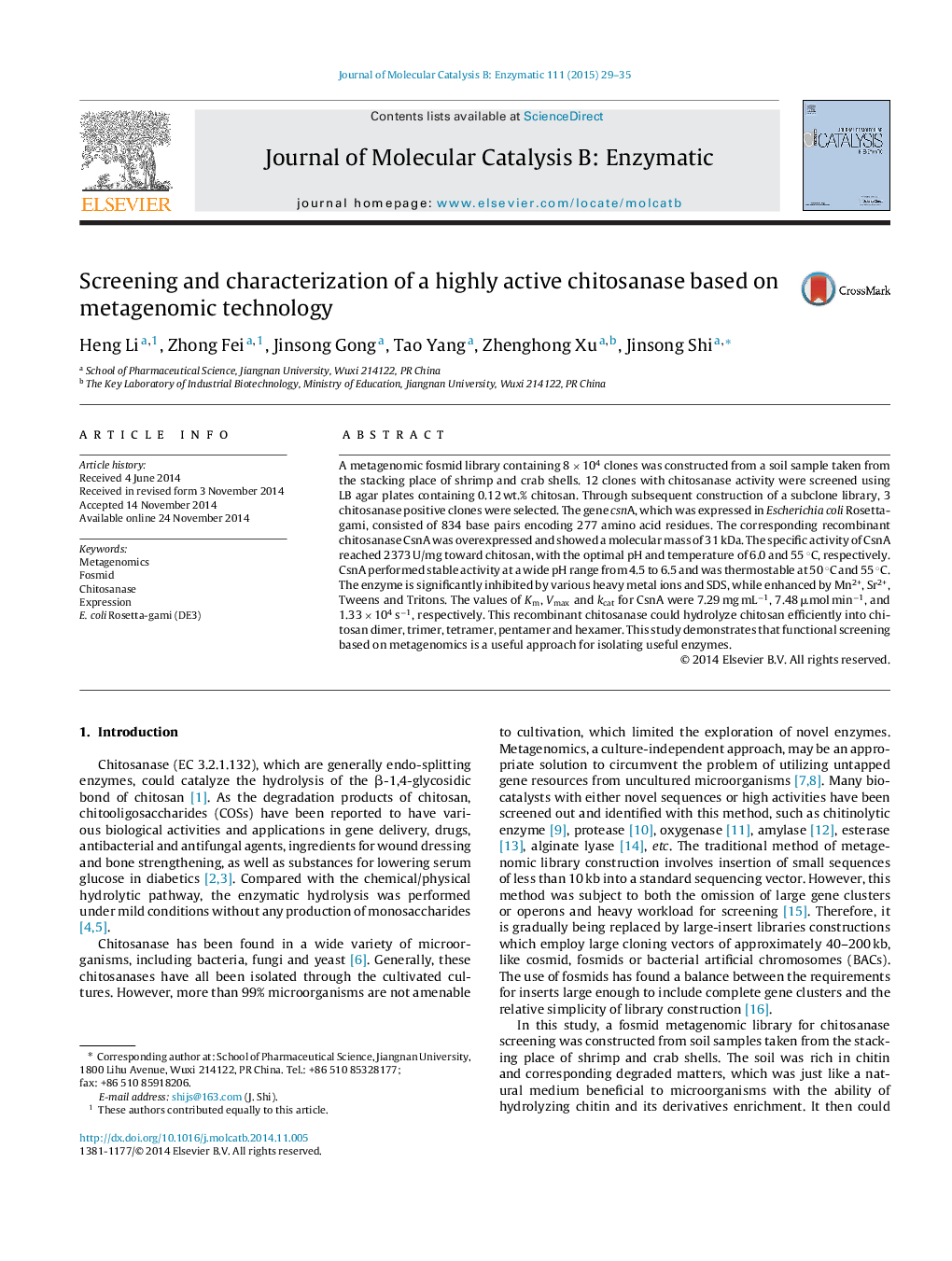| Article ID | Journal | Published Year | Pages | File Type |
|---|---|---|---|---|
| 69778 | Journal of Molecular Catalysis B: Enzymatic | 2015 | 7 Pages |
•Based on metagenomics, a gene encoding chitosanase was obtained with the construction of a fosmid library.•The chitosanase performed high hydrolytic activity toward chitosan and thermal stability at ambient temperatures.•The recombinant chitosanase could be obtained conveniently by purification through affinity chromatography.
A metagenomic fosmid library containing 8 × 104 clones was constructed from a soil sample taken from the stacking place of shrimp and crab shells. 12 clones with chitosanase activity were screened using LB agar plates containing 0.12 wt.% chitosan. Through subsequent construction of a subclone library, 3 chitosanase positive clones were selected. The gene csnA, which was expressed in Escherichia coli Rosetta-gami, consisted of 834 base pairs encoding 277 amino acid residues. The corresponding recombinant chitosanase CsnA was overexpressed and showed a molecular mass of 31 kDa. The specific activity of CsnA reached 2373 U/mg toward chitosan, with the optimal pH and temperature of 6.0 and 55 °C, respectively. CsnA performed stable activity at a wide pH range from 4.5 to 6.5 and was thermostable at 50 °C and 55 °C. The enzyme is significantly inhibited by various heavy metal ions and SDS, while enhanced by Mn2+, Sr2+, Tweens and Tritons. The values of Km, Vmax and kcat for CsnA were 7.29 mg mL−1, 7.48 μmol min−1, and 1.33 × 104 s−1, respectively. This recombinant chitosanase could hydrolyze chitosan efficiently into chitosan dimer, trimer, tetramer, pentamer and hexamer. This study demonstrates that functional screening based on metagenomics is a useful approach for isolating useful enzymes.
Graphical abstractFigure optionsDownload full-size imageDownload as PowerPoint slide
